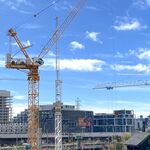44 North
Senior Member
Didn't a Superlinx thread exist last year. And shouldn't Superlinx cover all transit that GO reaches, so basically add on Brantford Transit, Peterborough Transit, Barrie Transit, and Niagara Falls Transit. Were these excluded because it hurt the business case. Just seems bit convenient for it to be Toronto-Waterloo corridor, while at the same time we have a provincial transit agency offering services well outside those boundaries.
For the most part am not in any way sold on this. Just on a basic level the bigger things get the more likely it falls apart. Roman Empire, British Empire, USSR. Toronto itself is already a massive region the size of NYC. Hard enough to finagle things in an area that large. Now multiply that by dozens, then erode away local representation. It's not sustainable.
Then look at Metrolinx. Had 12 years to figure out fare integration and they haven't done anything. Crosstown is well under construction which is fantastic, but aside from that what else is there? Can't give them credit for GO stuff since that was happening for decades prior. UPX was a colossal failure from the ground up that wasn't even given a full year to see how bad. So why would it make sense to expand that oversight over twenty thousand square km.
For the most part am not in any way sold on this. Just on a basic level the bigger things get the more likely it falls apart. Roman Empire, British Empire, USSR. Toronto itself is already a massive region the size of NYC. Hard enough to finagle things in an area that large. Now multiply that by dozens, then erode away local representation. It's not sustainable.
Then look at Metrolinx. Had 12 years to figure out fare integration and they haven't done anything. Crosstown is well under construction which is fantastic, but aside from that what else is there? Can't give them credit for GO stuff since that was happening for decades prior. UPX was a colossal failure from the ground up that wasn't even given a full year to see how bad. So why would it make sense to expand that oversight over twenty thousand square km.




